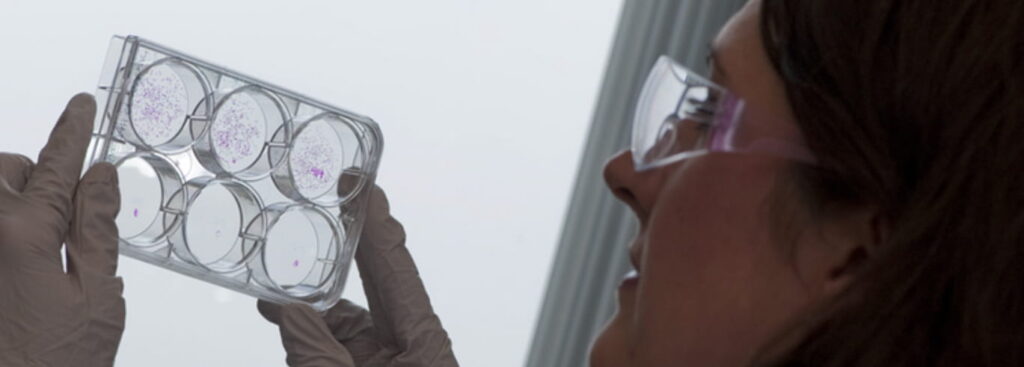
Originally published on July 5, 2011, at the Georgia State University website. Archived at the Internet Archive here.
By Jeremy Craig
University Relations
ATLANTA – Hope Robinson hates cancer. It wreaks havoc on the lives of the patient and their family – not only from the disease itself, but from the debilitating side effects of many current treatments.
She’s seen those painful side effects with her own family. Her father is fighting against prostate cancer, and her mother-in-law is undergoing treatment for ovarian adenocarcinoma.
Those experiences fuel Robinson, a senior in biology, as she searches for natural ways to prevent and treat cancer in the lab of associate professor of biology Ritu Aneja.
“The Holy Grail is to kill the cancer and not kill normal cells, and Dr. Aneja’s lab has found a number of possible treatments with that kind of selectivity,” Robinson said. “The research is still early, and it takes years before a treatment can get to a patient, but we’re seeing promising results.”
Finding a faculty member to study under in an undergrad research experience is a bit daunting. But she found Aneja, who is looking at the compounds in plants, such as sweet potato leaves, for ways to fight cancerous cells.
Those compounds may hold the key to not only killing cancer, but improving the quality of life for cancer patients. For example, her father has chronic, intense pain from nerve damage resulting from radiation treatments, some cancer patients lose their hair, and many patients lose days to nausea and exhaustion.
“All of those things factor in and really reduce your quality of life,” she said. “The treatments are so much better now, but we still need to find less toxic alternatives.”
Her work in Aneja’s lab has helped Robinson to get a better feel for what she would like to do after her December graduation. She originally had plans to go to medical school, but as she went along in her coursework, she found that the process of research and discovery was more exciting and fulfilling than she had imagined.
“Along the line I realized it was the discovery I loved,” she said. “As a doctor, I would for the most part be putting other people’s discoveries into practice. It is good, valuable and honorable, but it wasn’t what I loved. The opportunity for undergraduate research presented itself, and I jumped.
“I think the benefit of undergraduate research is that now, I have no illusions about what’s involved in research, and can choose that path with my eyes wide open” Robinson said. “When you’re in Dr. Aneja’s lab, it doesn’t matter if you’re an undergraduate – you’re going to get treated like a Ph.D. student. And that’s great, because you can rise to the challenge.”
Robinson has learned much from her experience, including methods and protocols in research. For example, she’s learned how to perform cell cultures and Western blot assays, as well as other techniques to determine how effective plant compounds are in anti-cancer treatment.
“You really get out of it what you put into it,” she said. “If you’re willing to be there 10 to 15 hours a week, and work with the graduate students, you can learn as much as you want, or as little, depending on your interest and commitment.”
She’s also participated in the Georgia State Undergraduate Research Conference, held each year during the spring semester, to get practice at presenting her work.
“It was exciting, and it was a valuable experience to be involved in that level of research and participation,” Robinson said. “To have the opportunity to present and concisely describe your research within three minutes was great practice. It builds your confidence.”
Robinson, who came back to school in her mid-30s, does both her regular school work, as well as her undergraduate research experience – BIOL 4910 – as a non-traditional student.
“I don’t have the same distractions that younger students do,” Robinson said. “I do have the responsibilities of a family, but I’m so much more focused than I ever could have been as a younger student. If I’m going to take the time, I sure as heck better be giving it my all.”
July 5, 2011
Archived at jeremyscraig.com on 12/6/2020